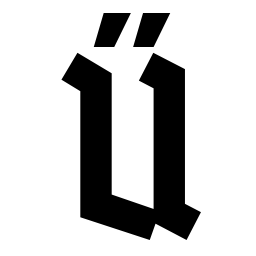Unsafe code¶
Ü by-default doesn’t allow some operations, that are considered to be unsafe:
Explicit constructors and destructors access
Accessing global mutable variables
Raw pointer dereference
Raw pointer arithmetic operations
cast_ref_unsafeoperatorcast_mutoperatorununitializedinitializerunsafefunction call
But if such operation is necessary it should be used inside unsafe block.
This block consists of unsafe keyword and a block body after it.
In such block all unsafe operations are allowed.
fn Foo()
{
unsafe
{
var i32 mut x= uninitialized;
x= 42;
}
}
It’s possible to use safe block inside unsafe block in order to temporary forbid unsafe operations.
fn Bar() unsafe;
fn Foo()
{
unsafe
{
Bar(); // Ok, it's allowed to call an unsafe function
safe
{
Bar(); // Error - here it's forbidden to call an unsafe function
}
Bar(); // Ok, now it's again allowed to call an unsafe function
}
}
There are also unsafe expressions.
They are similar to unsafe blocks but work inside expressions.
There are also safe expressions.
fn Bar() unsafe : i32;
fn Foo()
{
var i32 x= 2 * unsafe(Bar()); // Ok - unsafe context affects only unsafe function call.
}
Unsafe functions¶
Unsafe functions are functions that can’t be simple called without any consideration, it’s required to satisfy some preconditions in order to call them.
Unsafe functions are marked with usage of unsafe keyword - after parameters list and reference pollution notation.
Such functions may be called only within an unsafe block or expression.
The body of an unsafe function is not a unsafe block, if it is necessary to perform some unsafe operations inside it unsafe block or expression should be used explicitly.
fn Bar( i32 d ) unsafe : i32
{
unsafe
{
var i32 mut x= uninitialized;
x= 100 / d;
return x;
}
}
fn Foo()
{
unsafe
{
Bar( 7 );
}
}
